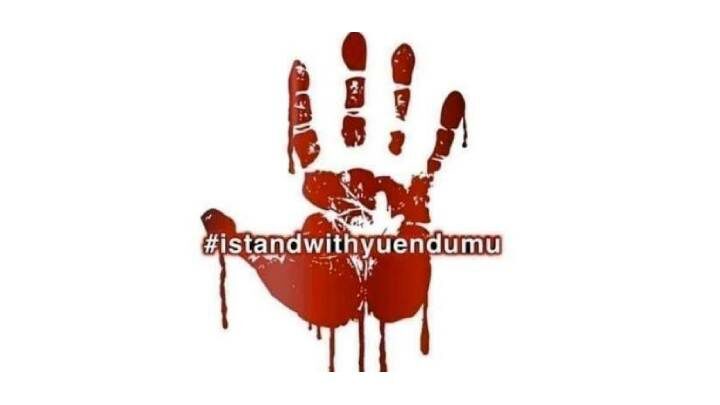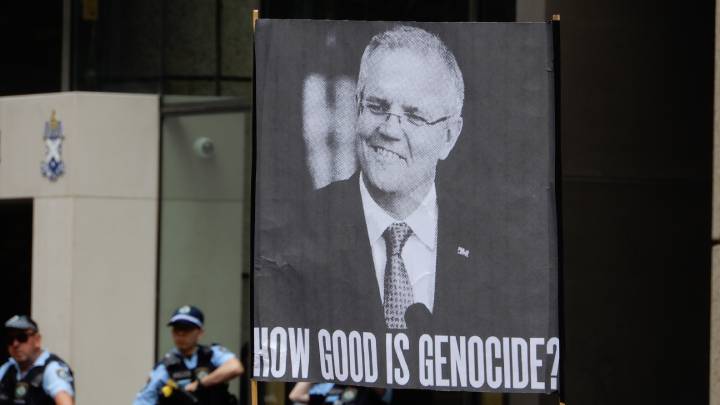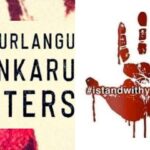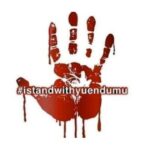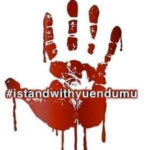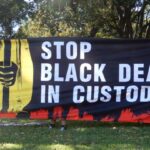Rolfe’s Acquittal Highlights Australia’s Well Oiled Settler Colonial Machinery
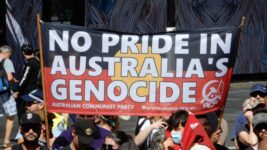
The not guilty verdict delivered by an all-non-Indigenous jury on 11 March in relation to the trial of former NT police constable Zachary Rolfe for the November 2019 killing of 19-year-old Warlpiri man Kumanjayi Walker was simultaneously shocking and yet unsurprising.
The outcome though is a clear sign that the imported British justice system that was subsequently honed locally upon the denial, dispossession and obliteration of the 500-odd tens-of-thousands-of-years-old First Nations communities of the continent is continuing to produce its desired outcomes.
A campaign calling for a ban on guns being carried within and used by police in remote Aboriginal communities in the NT – which was launched following the verdict by Walker’s own community in the town of Yuendumu – has since been dismissed by territory authorities.
So, white cops in vehicles carrying military-style weapons will continue to surveil black communities on their own land, in much the same way armed mounted officers policed the frontiers in early days of “settlement”, which involved the killing of First Peoples and the perpetration of the odd massacre.
A direct line can be drawn from Rolfe shooting the Warlpiri teenager to the first shots fired at two Gweagal men by UK captain James Cook’s 1770 landing party in Kamay-Botany Bay, as both acts lacked accountability but did assert invader dominance over the sovereign peoples of the continent.
Sanctioned killings
The charging of an Australian police officer over the murder of a First Nations person in their custody has been a rare occurrence throughout the history of this nation. However, Indigenous deaths in the custody of law enforcement or corrections institutions have been common.
The Rolfe trial held the potential to forge change in the approach this country takes to Aboriginal deaths in custody.
But his acquittal is damning, especially as the evidence showed Walker was shot twice in the side of his torso at close range, whilst Rolfe’s partner had the teen secured on the ground.
Yet, this is no aberration. Last October, a WA police constable was acquitted of the 2019 shooting of Yamatji woman JC, while former Queensland police officer Chris Hurley was absolved of the 2004 manslaughter of Doomadgee, whose spleen and liver were severely ruptured during arrest.
Indeed, Aboriginal and Torres Strait Islander deaths in custody were at such a crisis point in the late 1980s that a Royal Commission was established into the issue. In April 1991, it handed down compressive 339 recommendations, most of which remain unacted upon.
But since the release of this blueprint for effective change, at least 493 additional First Nations custodial deaths have occurred. And these numbers have been particularly steep over the 12 months to February this year, with 21 Aboriginal custody deaths transpiring over that time.
Protecting their own
The Rolfe verdict left many incensed as to how a jury could find him not guilty on all three charges. murder, manslaughter and violent act causing death. This was especially as the officer had already shot the teen in the back and his partner was on top of him when he delivered the fatal shots.
NT Supreme Court Justice John Burns decision to last week lift a suppression order on the evidence deemed inadmissible during the trial has further led credence to the assertion that the jury, which included a court-approved sibling of a police officer, got it wrong.
Two text messages Rolfe sent to an ex-army colleague reveal that he considered his position with the Alice Springs Immediate Response Team one that required him “to do cowboys stuff with no rules”. And he also likened the environment to “the Wild West” with, again, “fuck all rules”.
Additional withheld evidence involved Rolfe having smashed an Aboriginal man’s head into the ground, then asking another officer to scratch his face so he could say it was the doing of his victim, while later going on to lie about all this in court.
Rolfe is said to have similarly violently assaulted two other First Nations men on separate occasions prior to the Walker shooting.
Since his acquittal, Rolfe’s association with former soldier Ben Roberts-Smith has also come to light.
Roberts-Smith had acted as a mentor to Rolfe, while they were both serving in the Australian army in Afghanistan. And their relationship is so tight that Rolfe provided a character reference for Roberts-Smith regarding his current civil action against the local media for publishing his horrific war crimes.
Unequal before the law
As Melbourne University Indigenous Programs senior fellow Dr Amanda Porter explained last May, from the onset of British-imported law enforcement on this continent, the policing of First Nations populations has been completely different to the way officers treat people of European descent.
“The frontier police consisted of three separate forces: the mounted, the border police and the native police,” she told Sydney Criminal Lawyers. These bodies’ “policing of the frontier was extrajudicial. You can’t look up a piece of legislation where their powers had been enacted.”
“So, there were murders and deaths, and no one could ever be held to account,” Porter added.
The recently released final findings of the eight-year long Colonial Frontier Massacres Digital Map Project documented 414 frontier massacres between 1788 and 1930, with 50 percent of them being perpetrated by “agents of the state”, which included law enforcement and military officers.
And as Porter further explained, once Aboriginal “protection” laws began being enacted in the late 19th century, police were provided with powers to remove First Nations children, and to move individuals from their land to place them on reservations where officers controlled all aspects of life.
Extreme prejudice
But, perhaps, the strongest display that the dual function of the justice system continues to favour and absolve white law enforcement from any violence it metes out towards First Nations people is that the NT ICAC is now considering investigating the decision to even trial Rolfe.
NT anticorruption commissioner Michael Riches said last week that he’s considering launching an inquiry into the circumstances of Rolfe’s arrest and charging, following calls from the defendant’s lawyer, the leader of the state opposition, as well as the president of the NT police association.
This considering of the systemic racism that is a foundational part of the Australian criminal justice does go some way into explaining why these prejudicial outcomes continue to plague this nation well into the 21st century.
Although, it doesn’t quite account for how the jury came to find Rolfe not guilty on all charges after he fired two shots into the Warlpiri teen’s side with a Glock semi-automatic handgun held not more than five centimetres from him, while the man was lying on his back with an officer on top of him.
Yet, on taking another look at the findings of the frontier massacre research, one statistic does go some way into explaining why such a seemingly prejudicial verdict was forthcoming from the jury, and that’s the fact that 63 percent of the slaughters involved civilian participation.
So, just as there were two sets of rules governing law enforcement actions, it appears the same can be said for the laws regarding civilians. And just as that direct line of racism runs through the history of local policing, so too does it continue to affect the attitudes and actions of quiet Australians
